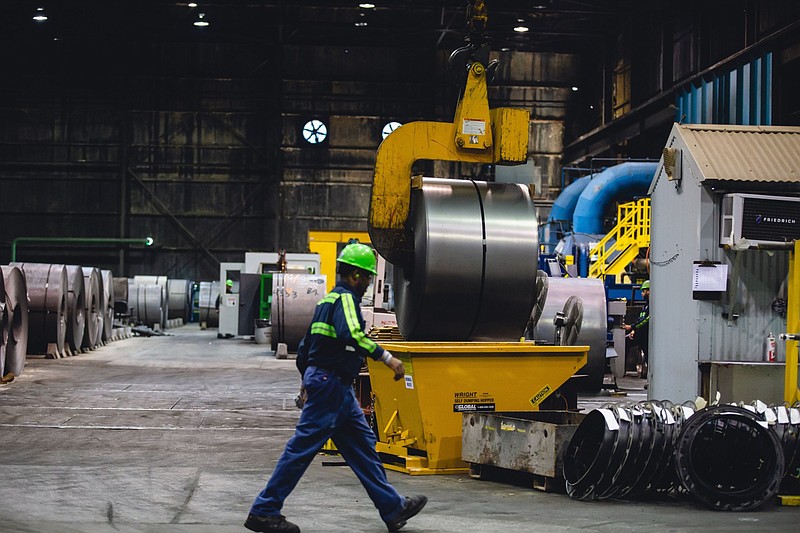The European Union agreed to avoid escalating its dispute with the U.S. over metal tariffs, sparing iconic products such as bourbon whiskey and Harley-Davidson motorbikes from a doubling of EU duties next month.
At issue is a high-profile disagreement that started in 2018 when former President Donald Trump imposed duties on steel and aluminum from Europe, Asia and elsewhere, citing risks to national security. The EU has since retaliated and tariffs on a range of American products were set to jump to 50% on June 1.
Under the agreement with the Biden administration, the EU will refrain from increasing those tariffs and both sides will engage in a dialog about overcapacity in the steel industry, according to a tweet from EU Commissioner Valdis Dombrovskis. Negotiators on both sides of the Atlantic are working to eventually remove the tariffs but are not yet ready to do so, officials have said.
"This decision affirms our determination to find effective joint solutions to this dispute which will end the tariffs imposed on the EU for reasons of national security, and to tackle global steel and aluminum excess capacity, and preserve our critical industries," Dombrovskis said in an emailed statement. "By suspending our measures, we are creating the space to resolve these issues before the end of the year."
Crucially, the EU's move comes at an important moment in trans-Atlantic relations with President Joe Biden due to participate in a U.S.-EU summit in Brussels next month during his first foreign trip as the nation's leader. Biden and his European counterparts are set to discuss trade cooperation, the White House said.
The truce comes after weeks of talks between senior trade officials and negotiators, with both sides eager to avoid an escalation and continue rebuilding their economic alliance. Earlier this year, the EU and the U.S. also agreed to suspend duties to ease a 17-year dispute over illegal aid to the world's biggest aircraft-makers.
The decision not to escalate the retaliatory tariffs marks a shift for the EU, which had previously opposed unilateral concessions and suggested suspending all duties on each other's products for six months while negotiations on a long-term solution continue.
Officials say it's a gesture of goodwill from the bloc as it seeks to repair ties with its most important partner and prepare the ground for talks to suspend the duties altogether.
Trump imposed the 25% steel tariff, along with a 10% duty on aluminum imports, in March 2018, using a national-security provision in a 1962 trade law. Some countries, including Brazil and South Korea, negotiated deals to avoid the tariff, and Trump dropped the duty for imports from Canada and Mexico. But the tariffs still apply for much of world.
"The EU is not a national security threat to the U.S. But the distortions created by global excess capacity -- driven largely by third parties -- pose a serious threat to the market-oriented EU and U.S.," Dombrovskis said.
Together, the EU and U.S. would be better positioned to deal with major steel producer China, which is seen as partly responsible for the glut.
The EU counter-tariffs targeted American products such as makers of bourbon, motorbikes, Levi Strauss & Co. jeans and peanut butter. Business associations and lawmakers have asked that the U.S. lift the duties, saying they do more harm than good.
"This news couldn't come soon enough. Distillers across the United States are breathing a huge sigh of relief after bracing for a 50% tariff on American whiskeys in just a matter of days," said Chris Swonger, president of the Distilled Spirits Council. He said any extension "would have forced many craft distillers out of the EU market," one of the most lucrative markets in the world.
Information for this article was contributed by Viktoria Dendrinou and Katharina Rosskopf of Bloomberg News (WPNS) and by Raf Casert and Bruce Schreiner of The Associated Press

